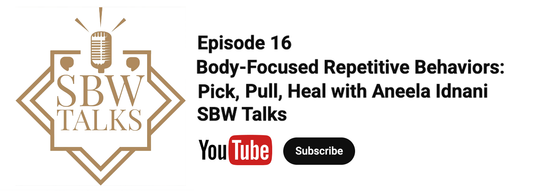Discover replacement strategies, expert tips, personal stories, and more.
Press

Introducing CoreBFRB
HabitAware is excited to share CoreBFRB, our new pre-trained gesture recognition model for Keen2 and KeenLite. CoreBFRB is designed to help people living with body-focused repetitive behaviors (BFRBs) like hair...
Introducing CoreBFRB
HabitAware is excited to share CoreBFRB, our new pre-trained gesture recognition model for Keen2 and KeenLite. CoreBFRB is designed to help people living with body-focused repetitive behaviors (BFRBs) like hair...

El País: Qué razones llevan a una persona a mor...
El País is a daily newspaper based in Spain, and is the most-read Spanish-language newspaper online. We are thrilled and honored to help bring BFRB awareness to this platform! "Aneela...
El País: Qué razones llevan a una persona a mor...
El País is a daily newspaper based in Spain, and is the most-read Spanish-language newspaper online. We are thrilled and honored to help bring BFRB awareness to this platform! "Aneela...

HabitAware in the New York Times: We've Embrace...
"We can shift the culture to embrace imperfect nails, but someone's got to start the trend, Ms. Idnani said. "The more we normalize broken, bitten, bare nails, the more we...
HabitAware in the New York Times: We've Embrace...
"We can shift the culture to embrace imperfect nails, but someone's got to start the trend, Ms. Idnani said. "The more we normalize broken, bitten, bare nails, the more we...

HabitAware on Twin Cities Business: Advertising...
I had been struggling in silence for over 20 years with trichotillomania—a compulsive hair pulling disorder that I’d hidden under eyeliner and shame. My husband caught me at that moment....
HabitAware on Twin Cities Business: Advertising...
I had been struggling in silence for over 20 years with trichotillomania—a compulsive hair pulling disorder that I’d hidden under eyeliner and shame. My husband caught me at that moment....

Podcast Feature: Body-Focused Repetitive Behavi...
We are so happy to be featured in SBW Talks! Host Nila Chakraborty interviews Aneela Idnani, a mental health advocate and co-founder of HabitAware. Aneela shares her personal journey with...
Podcast Feature: Body-Focused Repetitive Behavi...
We are so happy to be featured in SBW Talks! Host Nila Chakraborty interviews Aneela Idnani, a mental health advocate and co-founder of HabitAware. Aneela shares her personal journey with...

HabitAware’s Supportive Approach to BFRBs
Millions of people worldwide struggle with body-focused repetitive behaviors (BFRBs) like hair pulling (trichotillomania), skin picking (dermatillomania), and nail-biting. These often subconscious habits can lead to emotional distress, physical damage,...
HabitAware’s Supportive Approach to BFRBs
Millions of people worldwide struggle with body-focused repetitive behaviors (BFRBs) like hair pulling (trichotillomania), skin picking (dermatillomania), and nail-biting. These often subconscious habits can lead to emotional distress, physical damage,...